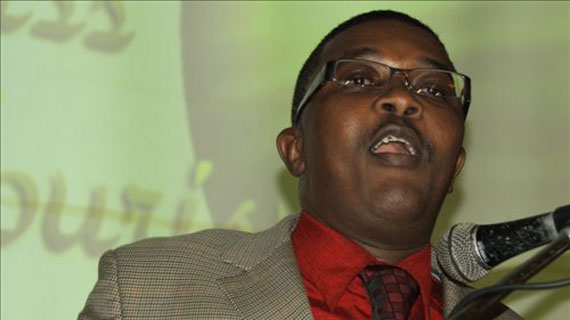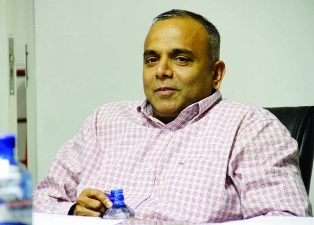
TOURISM and Hospitality Industry minister Walter Mzembi has accused players of understating occupancy figures and other performance indicators to evade taxes.
Taurai Mangudhla Business Reporter
Speaking just before his reappointment last week, Mzembi said local hotels, just like hospitality sectors elsewhere, had no clear ways of capturing their performances.
President Robert Mugabe reappointed Mzembi last Tuesday.
According to the Zimbabwe Tourism Authority (ZTA)’s half-year report for 2013, average hotel room occupancy levels rose by two percentage points to stand at 41% from 39% in 2012, while the average hotel bed occupancy levels, contracted by five percentage points from 37% in 2012 to 32% this year.
“The 2% is an understatement. In fact, there is not a time this country will have so many activities happening at the same time,” Mzembi said. “I don’t normally rubbish anyone’s figures, but I just go back to science.
“What we see with the physical eye and can attest to is that the first half of 2013, without even getting scientific about it, should have been the busiest for the hospitality sector on the back of Copac (Constitutional Select Committee) activities, elections which brought a huge contingent of observes and preparations for the UNWTO (United Nations World Tourism Organisation) general assembly and the conference itself have seen heightened activity even on the domestic sector.”
The first half of 2013, Mzembi said, was the busiest in the past five years because of elections and the referendum with the ZTA acknowledging an unusual trend where international tourist arrivals grew during the period.
- Chamisa under fire over US$120K donation
- Mavhunga puts DeMbare into Chibuku quarterfinals
- Pension funds bet on Cabora Bassa oilfields
- Councils defy govt fire tender directive
Keep Reading
To address the problems of underreporting, the minister said, the new government should quickly emerge with an accounting method that accurately measures some of those statistics.
“What I know is that in the absence of an internal Tourism Satellite Accounting (TSA) package, people throw statistics that obviously save them from taxes,” Mzembi said.
“You find that hotels in their formula and model of doing business, there is nothing more than 70% because anything beyond 70% is a bonus which they don’t want to declare if it happens.”
Development of a TSA is in line with Zimbabwe’s broader tourism masterplan that is expected to see arrivals grow to five million by 2015 from the current 2,2 million.
The UNWTO is assisting the Regional Tourism Organisation of Southern Africa come up with a TSA package by 2015. Once established, a TSA would enable accurate capturing of tourism data and reporting.
Zimbabwe’s tourism sector has been affected by a bad national image, but is expected to continue recovering going forward.
According to the ZTA 2013 half-year report, arrivals into Zimbabwe are expected to ride on the rejuvenation of the country’s major markets throughout the year.
In the period under review, Zimbabwe recorded a 12% increase in tourist arrivals in the first half of 2013, standing at 859 995 as compared to 767 393 during the same period in 2012, a sign the national image is improving.










